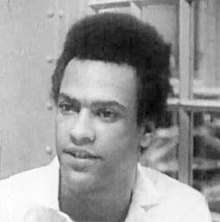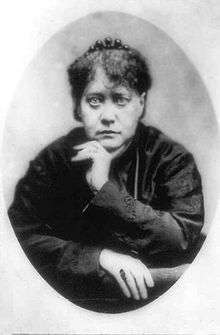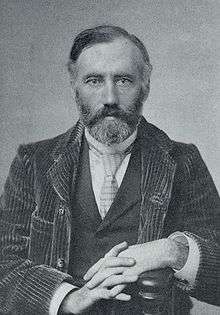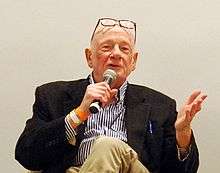
It is better to oppose the forces that would drive me to self-murder than to endure them. ... We have such a strong desire to live with hope and human dignity that existence without them is impossible. When reactionary forces crush us, we must move against these forces, even at the risk of death. ~ Huey P. Newton
.jpg)
A low serotonin level... can dry up the wellsprings of life’s happiness, withering a person's interest in his existence and increasing the risk of depression and suicide. ~ Ronald Kutulak
Those who suppose that after a suicide they will return to the place from which they were sent are indeed mistaken, for the whirl of space will carry them far away, like a leaf in autumn. The desire to live must be expressed consciously. Man must realize what he is striving for, and remember that he has good deeds to perform and a mission to fulfill here on Earth. ~Agni Yoga

Suicide is the deliberate or the hurried action of the man who is trying to get out of a trouble and escape from it. Yet he cannot escape from it...He is wide awake on the other side of death, exactly the same man he was a moment before... no more changed than if he had merely taken off his coat. The result of his losing the physical body is that his capacity for suffering is very much increased. ~Annie Besant

Helena Petrovna Blavatsky: Suicide is the worst of crimes and dire in its results...No man, we repeat, has a right to put an end to his existence simply because it is useless.

Suicide is a huge folly, because it places the committer of it in an infinitely worse position than he was in under the conditions from which he foolishly hoped to escape. It is not death. It is only a leaving of one well-known house in familiar surroundings to go into a new place where terror and despair alone have place. ~William Quan Judge

In Raymond Moody's... book “Life After Life.” With regard to interviews...with people who had had a Near Death Experience [after a] suicide attempt from which they... survived... “These experiences were uniformly characterized as being unpleasant... If you leave here a tormented soul, you will be a tormented soul over there, too... the conflicts they had attempted suicide to escape were still present when they died... but with added complications.... they were unable to do anything about their problems.. they had the feeling they would be there for a long time... their penalty for 'breaking the rules' trying to release themselves prematurely from... an ‘assignment’ – to fulfill a certain purpose in life.” **Raymond Moody
.jpg)
The man, who in a fit of melancholy, kills himself today, would have wished to live had he waited a week. ~Voltaire
Suicide is the act of killing oneself.
A
- Those who suppose that after a suicide they will return to the place from which they were sent are indeed mistaken, for the whirl of space will carry them far away, like a leaf in autumn. The desire to live must be expressed consciously. Man must realize what he is striving for, and remember that he has good deeds to perform and a mission to fulfill here on Earth.
- Agni Yoga, Supermundane #188
- A yogi understands the great harm of the premature ending of one’s own life. A yogi understands to what extent he can harm not only himself but also his entire surroundings. Each violence against life is a disturbance of harmony, and heavy is the price for any attempt against the rhythm of cosmic order.
- Agni Yoga, Supermundane #893
- A brave man once requested me
To answer questions that are key
Is it to be or not to be
And I replied oh why ask me
- That suicide is painless
It brings so many changes
And I can take or leave them if I please- Song from M*A*S*H (Suicide Is Painless) lyrics by Mike Altman.
- Suicide is a permanent solution to a temporary problem.
- Anonymous widely used expression, used by many authors, it appears at least as early as in Death and Dying (1979) in the Social Issues Resources Series, Vol. 1, p. 35.
B
- [Suicide] is the deliberate or the hurried action of the man who is trying to get out of a trouble and escape from it. Yet he cannot escape from it. He has struck away his body, he is wide awake on the other side of death, exactly the same man he was a moment before, except that his body is thrown off; no more changed than if he had merely taken off his coat. The result of his losing the physical body is that his capacity for suffering is very much increased.
- Annie Besant as quoted in Suicides and Compassion (2012)
- But if there be an hereafter,
And that there is, conscience, uninfluenc'd
And suffer'd to speak out, tells every man,
Then must it be an awful thing to die;
More horrid yet to die by one's own hand.- Robert Blair, The Grave (1743), line 398.
- Our time is fixed, and all our days are number'd;
How long, how short, we know not:—this we know,
Duty requires we calmly wait the summons,
Nor dare to stir till Heaven shall give permission.- Robert Blair, The Grave (1743), line 417.
- The common damn'd shun their society.
- Robert Blair, The Grave (1743), referring to suicides in Hell. Attributed to Lamb, but not found in his works.
- Suicide is the worst of crimes and dire in its results.
- No more than murder, is it ever justifiable, however desirable it may sometimes appear. The Occultist, who looks at the origin and the ultimate end of things, teaches that the individual, who affirms that any man, under whatsoever circumstances, is called upon to put and end to his life, is guilty of as great an offence and of as pernicious a piece of sophistry, as the nation that assumes a right to kill in war thousands of innocent people under the pretext of avenging the wrong done to one.
- No man, we repeat, has a right to put an end to his existence simply because it is useless... There is a vast difference between the man who parts with his life in sheer disgust at constant failure to do good, out of despair of ever being useful, or even out of dread to do injury to his fellow-men by remaining alive; and one who gives it up voluntarily to save the lives either committed to his charge or dear to him. One is a half insane misanthrope the other, a hero and a martyr. One takes away his life, the other offers it in sacrifice to philanthropy and to his duty.
- The man who gives up his place in a boat that will not hold all, in favour of younger and weaker beings; the physician, the sister of charity, and nurse who stir not from the bed-side of patients dying of an infectious fever; the man of science who wastes his life in brain-work and fatigue and knows he is so wasting it and yet is offering it day after day and night after night in order to discover some great law of the universe, the discovery of which may bring in its results some great boon to mankind; the mother that throws herself before the wild beast, that attacks her children, to screen and give them the time to fly; all these are not suicides. The impulse which prompts them thus to contravene the first great law of animated nature--the first instinctive impulse of which is to preserve life--is grand and noble.
- H. P. Blavatsky, Is Suicide a Crime?,'The Theosophist, (November 1882)
- Don't commit suicide, because you might change your mind two weeks later.
- Art Buchwald, in a humorous personal mantra he used to combat his states of depression, published in Too Soon to Say Goodbye (2006).
C
- The man who kills a man, kills a man. The man who kills himself, kills all men. As far as he is concerned he wipes out the world.
- G. K. Chesterton, Orthodoxy (1908).
- 死神の附いた耳へは、意見も道理も入るまいとは思へど、さりとは愚痴の至り
- To the ears of one possessed by the God of Death, reason and objections seem like so many idle complaints.
- Chikamatsu Monzaemon, The Love Suicides at Amijima (1721).
D
- Fool! I mean not
That poor-souled piece of heroism, self-slaughter;
Oh no! the miserablest day we live
There's many a better thing to do than die!- George Darley, Ethelstan (1841).
- Death is before me today
Like the recovery of a sick man …
Like the longing of a man to see his home again
After many years of captivity …
- "Dispute between a man and his Ba", Egypt, ca. 2100 BCE.
F
- Who doubting tyranny, and fainting under
Fortune's false lottery, desperately run
To death, for dread of death; that soul's most stout,
That, bearing all mischance, dares last it out.- John Fletcher, The Honest Man's Fortune (1613; published 1647), Act IV, scene 1.
H
- If suicide be supposed a crime, it is only cowardice can impel us to it. If it be no crime, both prudence and courage should engage us to rid ourselves at once of existence when it becomes a burden. It is the only way that we can then be useful to society, by setting an example which, if imitated, would preserve every one his chance for happiness in life, and would effectually free him from all danger or misery.
- David Hume, Essay on Suicide (c. 1755).
J
- What a silly thing to do, he thought. What a goddam silly thing to do. You wont even be there to watch their faces.
- James Jones, From Here to Eternity, Ch. 38.
- Suicide is a huge folly, because it places the committer of it in an infinitely worse position than he was in under the conditions from which he foolishly hoped to escape. It is not death. It is only a leaving of one well-known house in familiar surroundings to go into a new place where terror and despair alone have place.
- Suicide, like any other murder is a sin because it is a sudden disturbance of the harmony of the world. It is a sin because it defeats nature. Nature exists for the sake of the soul and for no other reason, it has the design, so to say, of giving the soul experience and self-consciousness. These can only be had by means of a body through which the soul comes in contact with nature, and to violently sever the connection before the natural time defeats the aim of nature, for the present compelling her, by her own slow processes, to restore the task left unfinished. And as those processes must go on through the soul that permitted the murder, more pain and suffering must follow.
- The fate of the suicide is horrible in general. He has cut himself off from his body by using mechanical means that affect the body, but cannot touch the real man. He then is projected into the astral world, for he has to live somewhere. There the remorseless law, which acts really for his good, compels him to wait until he can properly die. Naturally he must wait, half dead, the months or years which, in the order of nature, would have rolled over him before body and soul and spirit could rightly separate. He becomes a shade; he lives in purgatory, so to say, called by the Theosophist the “place of desire and passion,” or “Kama-Loka.” He exists in the astral realm entirely, eaten up by his own thoughts. Continually repeating in vivid thoughts the act by which he tried to stop his life’s pilgrimage, he at the same time sees the people and the place he left, but is not able to communicate with any one...
K
- Suicide evokes revulsion with horror, because everything in nature seeks to preserve itself: a damaged tree, a living body, an animal; and in man, then, is freedom, which is the highest degree of life, and constitutes the worth of it, to become now a principium for self-destruction? This is the most horrifying thing imaginable. For anyone who has already got so far as to be master, at any time, over his own life, is also master over the life of anyone else; for him, the door stands open to every crime, and before he can be seized he is ready to spirit himself away out of the world. So suicide evokes horror, in that a man thereby puts himself below the beasts. We regard a suicide as a carcase, whereas we feel pity for one who meets his end through fate.
- Immanuel Kant, Lectures on Ethics, trans. Peter Heath, Cambridge University Press, 1997, Part II, p. 146
Darkling I listen; and, for many a time
I have been half in love with easeful Death,
Call'd him soft names in many a mused rhyme,
To take into the air my quiet breath;
Now more than ever seems it rich to die,
To cease upon the midnight with no pain …- John Keats in "Ode to a Nightingale".
- Just as in a drama, by shortening the time and condensing the events, one is enabled to see the content of many years in the course of a few hours, so also one wants to arrange oneself dramatically within temporality. God’s plan for existence is rejected, so that temporality is entirely development, complication-eternity the denouement. Everything is arranged within temporality, a score of years devoted to development, then ten years, and then the denouement follow. Undeniably death is also a denouement, and then it is over, one is buried-yet not before the denouement of decomposition has begun. But anyone who refuses to understand that the whole of one’s life should be the time of hope is veritably in despair, no matter, absolutely no matter, whether he is conscious of it or not, whether he counts himself fortunate in his presumed well-being or wears himself out in tedium and trouble. Anyone who gives up the possibility that his existence could be forfeited in the next moment-provided he does not give up this possibility because he hopes for the possibility of the good, anyone who lives without possibility is in despair. He breaks with the eternal and arbitrarily puts an end to possibility; without the consent of eternity, he ends where the end is not, instead of, like someone who is taking dictation, continually having his pen poised for what comes next, so that he does not presume meaninglessly to place a period before the meaning is complete or rebelliously to throw away his pen.
- Soren Kierkegaard Works of Love, 1847, Hong 1995 p. 251-252
- A low serotonin level . . . can dry up the wellsprings of life’s happiness, withering a person’s interest in his existence and increasing the risk of depression and suicide.
- Ronald Kutulak, in his book Inside the Brain. Cited in Awake! magazine, 10/22 2001.
L
- While foulest fiends shun thy society.
- Nathaniel Lee, The Rival Queens (1677), V, I, 86.
- Ah, yes, the sea is still and deep,
All things within its bosom sleep!
A single step, and all is o'er,
A plunge, a bubble, and no more.- Henry Wadsworth Longfellow, Christus, The Golden Legend (1872), Part V.
M
- When Fannius from his foe did fly
Himself with his own hands he slew;
Who e'er a greater madness knew?
Life to destroy for fear to die.- Martial, Epigrams (c. AD 86-103), Book II. 80. Same idea in Antiphanes—Fragment. Comicorum Græcorum, p. 567. Meineke's ed.
- He
That kills himself to avoid misery, fears it,
And, at the best, shows but a bastard valour.
This life's a fort committed to my trust,
Which I must not yield up till it be forced:
Nor will I. He's not valiant that dares die,
But he that boldly bears calamity.- Philip Massinger, The Maid of Honour, (c. 1621; printed 1632), Act IV, scene 3.
- If you like not hanging, drown yourself;
Take some course for your reputation.- Philip Massinger, A New Way to pay Old Debts (1625), Act II, scene 1.
- Suicide is a private thing.
- Heather McNamara, Heathers.
- Suicide kills two people. That's what it's for.
- Referring to the guilt and grief close surviving dependents feel after a suicide
- Arthur Miller, After the Fall.
- In his famous and highly regarded book “Life After Life.” With regard to interviews he had conducted with people who had had a Near Death Experience as a result of a suicide attempt from which they either survived or were medically resuscitated, Moody writes: “These experiences were uniformly characterized as being unpleasant. As one woman said, ‘If you leave here a tormented soul, you will be a tormented soul over there, too.’ In short, they report that the conflicts they had attempted suicide to escape were still present when they died, but with added complications. In their disembodied state they were unable to do anything about their problems, and they also had to view the unfortunate consequences which resulted from their acts. A man who was despondent about the death of his wife shot himself, ‘died’ as a result, and was resuscitated. He states: ‘I didn’t go where [my wife] was, I went to an awful place. … I immediately saw the mistake I had made. … I thought, ‘I wish I hadn’t done it.’ Others who experienced this unpleasant ‘limbo’ state have remarked that they had the feeling they would be there for a long time. This was their penalty for ‘breaking the rules’ by trying to release themselves prematurely from what was, in effect, an ‘assignment’ – to fulfill a certain purpose in life.”
- In his subsequent book “Reflections on Life After Life,” Moody says: “All of these people agree on one point: they felt their suicidal attempts solved nothing. They found that they were involved [in the other world] in exactly the same problems from which they had been trying to extricate themselves by suicide. Whatever difficulty they had been trying to get away from was still there on the other side, unresolved. One person mentioned being “trapped” in the situation which had provoked her suicide attempt. [It was] repeated again and again, as if in a cycle.”
N

Jumping off a bridge is not the same as moving to wipe out the overwhelming force of an oppressive army. ~ Huey P. Newton
Suicide is not a solution
But it remains an excellent option- Impaled Nazarene, "Nihil", Nihil (2000).
- I do not think life will change for the better without an assault on the establishment, which goes on exploiting the wretched of the earth. This belief lies at the heart of the concept of revolutionary suicide. Thus it is better to oppose the forces that would drive me to self-murder than to endure them. Although I risk the likelihood of death, there is at least the possibility, if not the probability, of changing intolerable conditions.
- Huey P. Newton, Revolutionary Suicide (1973), p. 3
- Revolutionary suicide does not mean that I and my comrades have a death wish; it means just the opposite. We have such a strong desire to live with hope and human dignity that existence without them is impossible. When reactionary forces crush us, we must move against these forces, even at the risk of death.
- Huey P. Newton, Revolutionary Suicide (1973), p. 3
- The people will win a new world. Yet when I think of individuals in the revolution, I cannot predict their survival. Revolutionaries must accept this fact. ... Some see our struggle as a symbol of the trend toward suicide among Blacks. Scholars and academics, in particular, have been quick to make this accusation. They fail to perceive differences. Jumping off a bridge is not the same as moving to wipe out the overwhelming force of an oppressive army. When scholars call our actions suicidal, they should be logically consistent and describe all historical revolutionary movements in the same way. Thus the American colonialists, the French of the late eighteenth century, the Russians of 1917, the Jews of Warsaw, the Cubans, the NLF, the North Vietnamese—any people who struggle against a brutal and powerful force—are suicidal.
- Huey P. Newton, Revolutionary Suicide (1973), pp. 4-5
- My fear was not of death itself, but a death without meaning. I wanted my death to be something the people could relate to, a basis for further mobilization of the community.
- Huey P. Newton, Revolutionary Suicide (1973), p. 190
P
- It's in our nature to kill ourselves.
- Papa Roach, "Blood Brothers"
Razors pain you;
Rivers are damp;
Acids stain you;
And drugs cause cramp;
Guns aren't lawful;
Nooses give;
Gas smells awful;
You might as well live.- Dorothy Parker, "Resume" (1926).
- Consider this point carefully: nowadays, suicide is just a way of disappearing. It is carried out timidly, quietly, and falls flat. It is no longer an action, only a submission.
- Cesare Pavese, diary entry, 1936-04-24, in This Business of Living: Diaries 1935-1950
- Here's the difficulty about suicide: it is an act of ambition that can be committed only when one has passed beyond ambition.
- La difficoltà di commettere suicidio sta in questo: è un atto di ambizione che si può commettere solo quando si sia superata ogni ambizione.
- Cesare Pavese, This Business of Living, 1938-01-16
- No one ever lacks a good reason for suicide.
- Cesare Pavese, This Business of Living, 1938-03-23
- The act—the act—must not be a revenge. It must be a calm, weary renunciation, a closing of accounts, a private, rhythmic deed. The last remark.
- Cesare Pavese, This Business of Living, 1950-05-10
- Suicides are timid murderers. Masochism instead of Sadism.
- Cesare Pavese, This Business of Living, 1950-08-17
- My duty will be to continue to endeavor to do the work I seem to have been put into the world to do; and when the moment arrives at which there seems to be no rational hope of making my life useful, my duty, as I see it, will be to treat my life just as I would an aching tooth that there was no hope of making useful. I will have it out.
- Charles Sanders Peirce (Letter to William James, 12 June 1902), as quoted in Charles Sanders Peirce : A Life, by Joseph Brent
- Dying
is an art, like everything else.
I do it exceptionally well.
- Sylvia Plath, "Lady Lazarus".
R
- Some people might say, I have a right to die, when they are arguing the case for suicide. And while this is true, it is also true that the people on your planet need every bit of help and encouragement they can get from each person alive. In a certain sense, the energy of each individual does keep the world going, and to commit suicide is to refuse a basic, cooperative venture.
- Jane Roberts, in The Way Toward Health (1997) p. 265
S
- We cannot tear out a single page from our life, but we can throw the whole book into the fire.
- George Sand, Mauprat (1837).
- Bravest at the last,
She levell'd at our purposes, and, being royal,
Took her own way.- William Shakespeare, Antony and Cleopatra (1600s), Act V, scene 2, line 338.
- Against self-slaughter
There is a prohibition so divine
That cravens my weak hand.- William Shakespeare, Cymbeline (1611), Act III, scene 4, line 78.
- To be, or not to be,—that is the question:—
Whether 'tis nobler in the mind to suffer
The slings and arrows of outrageous fortune,
Or to take arms against a sea of troubles,
And by opposing end them?—To die, to sleep,—
No more; and by a sleep to say we end
The heart-ache, and the thousand natural shocks
That flesh is heir to,—'tis a consummation
Devoutly to be wish'd. To die, to sleep;—
To sleep, perchance to dream:—ay, there's the rub;
For in that sleep of death what dreams may come,
When we have shuffled off this mortal coil,
Must give us pause: there's the respect
That makes calamity of so long life;
For who would bear the whips and scorns of time,
The oppressor's wrong, the proud man's contumely,
The pangs of despis'd love, the law's delay,
The insolence of office, and the spurns
That patient merit of the unworthy takes,
When he himself might his quietus make
With a bare bodkin? who would these fardels bear,
To grunt and sweat under a weary life,
But that the dread of something after death,—
The undiscover'd country, from whose bourn
No traveller returns,—puzzles the will,
And makes us rather bear those ills we have
Than fly to others that we know naught of?
Thus conscience does make cowards of us all;
And thus the native hue of resolution
Is sicklied o'er with the pale cast of thought;
And enterprises of great pith and moment,
With this regard, their currents turn awry,
And lose the name of action.- William Shakespeare, Hamlet (1600–01), Act III, scene 1; "poor" for "proud"; "despriz'd" for "despised" in folio.
- The more pity that great folk should have countenance in this world to drown or hang themselves, more than their even Christian.
- William Shakespeare, Hamlet (1600–01), Act V, scene 1, line 29.
- Therein, ye gods, you make the weak most strong; Therein, ye gods, you tyrants do defeat: Nor stony tower, nor walls of beaten brass, Nor airless dungeon, nor strong links of iron, Can be retentive to the strength of spirit; But life, being weary of these worldly bars, Never lacks power to dismiss itself.
- William Shakespeare, Julius Cæsar (1599), Act I, Scene 3.
- He that cuts off twenty years of life
Cuts off so many years of fearing death.- William Shakespeare, Julius Cæsar (1599), Act III, scene 1, line 101.
- You ever-gentle gods, take my breath from me;
Let not my worser spirit tempt me again
To die before you please!- William Shakespeare, King Lear (1608), Act IV, scene 6, line 221.
T
- “I cannot live with myself any longer.” This was the thought that kept repeating itself in my mind. Then suddenly I became aware of what a peculiar thought it was. “Am I one or two? If I cannot live with myself, there must be two of me: the ‘I’ and the ‘self’ that ‘I’ cannot live with.” “Maybe,” I thought, “only one of them is real.”
- Eckhart Tolle, The Power of Now (1997)
- Suicide is self-expression.
- Type O Negative in "Gravitational Constant G = 6.67 × 10−8 cm−3gm−1sec−2" on Slow, Deep and Hard (1991) [originally titled None More Negative]
V
- The man, who in a fit of melancholy, kills himself today, would have wished to live had he waited a week.
- Voltaire, "Cato", Philosophical Dictionary (1764).
W
- The so-called ‘psychotically depressed’ person who tries to kill herself doesn't do so out of quote ‘hopelessness’ or any abstract conviction that life's assets and debits do not square. And surely not because death seems suddenly appealing. The person in whom Its invisible agony reaches a certain unendurable level will kill herself the same way a trapped person will eventually jump from the window of a burning high-rise. Make no mistake about people who leap from burning windows. Their terror of falling from a great height is still just as great as it would be for you or me standing speculatively at the same window just checking out the view; i.e. the fear of falling remains a constant. The variable here is the other terror, the fire's flames: when the flames get close enough, falling to death becomes the slightly less terrible of two terrors. It's not desiring the fall; it's terror of the flames. Yet nobody down on the sidewalk, looking up and yelling ‘Don‘t!’ and ‘Hang on!’, can understand the jump. Not really. You'd have to have personally been trapped and felt flames to really understand a terror way beyond falling.
- David Foster Wallace, Infinite Jest (1996)
- There is no refuge from confession but suicide; and suicide is confession.
- Daniel Webster, Argument on the Murder of Captain White (April 6, 1830).
Y
- Britannia's shame! There took her gloomy flight,
On wing impetuous, a black sullen soul…
Less base the fear of death than fear of life.
O Britain! infamous for suicide.- Edward Young, Night Thoughts (1742-1745), Night V, line 436.
- It's better to burn out than to fade away.
- Neil Young, My My, Hey Hey (Out Of The Blue) on the album Rust Never Sleeps (1979). Quoted by Kurt Cobain in his suicide note.
Z
- People who try to commit suicide — don't attempt to save them! . . . China is such a populous nation, it is not as if we cannot do without a few people.
- Mao Zedong as quoted in Mao's Last Revolution (2006) by Roderick MacFarquhar and Michael Schoenhals, ISBN 0674023323 [citation needed]
See also
External links
This article is issued from
Wikiquote.
The text is licensed under Creative
Commons - Attribution - Sharealike.
Additional terms may apply for the media files.